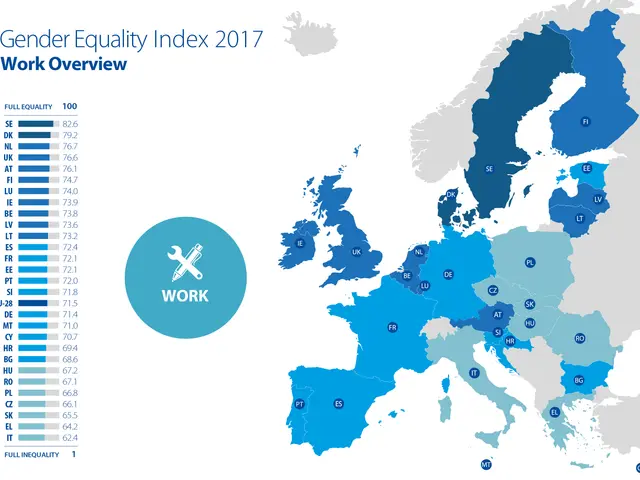Gridlock on Autobahns: The Hidden "War" for Truck Parking Spaces? Auto Club Slams Congested Rest Areas, Especially in East Germany
- *
Dispute simmering over appropriate truck parking spots - Competition for parking space for trucks escalates into a minor conflict
Germany's highways are caught in a truck parking crisis, with thousands of spots missing, according to surveys by the Auto Club Europa (ACE). From April 15 to June 3, the traffic club scrutinized parking conditions at rest areas in the wee hours when visibility is low. The A10 in Berlin and the A24 in Mecklenburg-Vorpommern faced the grim reality of incorrectly parked trucks, with accidents and hazards happening routinely.
"By 4 or 5 PM, the battle for parking spots begins," Dirk Engelhardt, spokesperson for the Federal Association of Goods Transport, Logistics, and Disposal (BGL), paints a vivid picture. The federal government aims to unclog these bottlenecks. However, they report that the number of parking spots has only increased incrementally since 2018.
ACE: Heavy Vehicle Congestion at Rest Areas in Eastern Germany
While ACE's truck count is a momentary glimpse, it showed an alarming degree of overcrowding at 31 assessed rest areas in eastern German states. They found a total of 2,168 parked trucks, while only 1,412 spots were available – an overcrowding of approximately 50 percent.
The remaining 21 rest areas saw concrete traffic hazards, especially during night hours, with trucks blocking entrances and exit ramps. Unfortunately, some trucks were parked on spaces designated for cars. "A positive note, no trucks were found parked on the highway's shoulder in any rest area," stated the ACE report.
Notable rest areas on A10 and A24 under pressure
The Fichtenplan Süd on the A10 (in the Dahme-Spreewald district on the southern Berlin Ring) and Stolpe Nord on the A24 (Mecklenburg-Vorpommern) stood out due to numerous safety risks, according to the research. The Auto Club initiated the sample count of parked trucks at rest areas on the occasion of the "Day of Traffic Safety" on June 21. The assessment was carried out from Monday to Friday, excluding weekend standstill times of trucks. The overall results will be disclosed on June 18.
The Federal Association of Goods Transport, Logistics, and Disposal voices concerns that the lack of truck parking spots prevents drivers from accessing sanitary facilities. Furthermore, vehicles at rest area entrances and exits endanger themselves and other road users.
The association advocates creating more spots off the highways and calls for streamlining approval procedures. When designating new industrial areas, truck parking spots should be mandatory, according to Engelhardt.
Can the problem intensify with more E-charging stations?
The association expresses concern that the problem might worsen in the coming years due to the necessary expansion of charging infrastructure for electric trucks. "As a result, three truck parking spots without a charging station could become two truck parking spots with a charging station."
Sources indicate that over 19,500 regular truck parking spots are missing on and near German autobahns. The BGR reports that the overnight parking of trucks exceeds 102,000, with 82,490 parking spots actually available.
The Federal Association of Goods Transport, Logistics, and Waste Disposal considers the parking shortage as a critical issue and demands immediate action from the Ministry of Transport.
Meanwhile, the Federal Ministry of Transport discloses that approximately 3,000 new parking spots were added between 2018 and 2023. They aim to enhance parking space utilization through telematic parking systems.
- *
Note: This content does not definitively link the shortage of truck parking spaces to the installation of E-charging stations, as the search results did not indicate such a link.
- The lack of truck parking spots on German highways is a growing concern, as indicated by surveys by the Auto Club Europa (ACE).
- The Federal Association of Goods Transport, Logistics, and Disposal believes that the shortage of parking spots could intensify with the expansion of charging infrastructure for electric trucks, potentially reducing the number of available spots.








